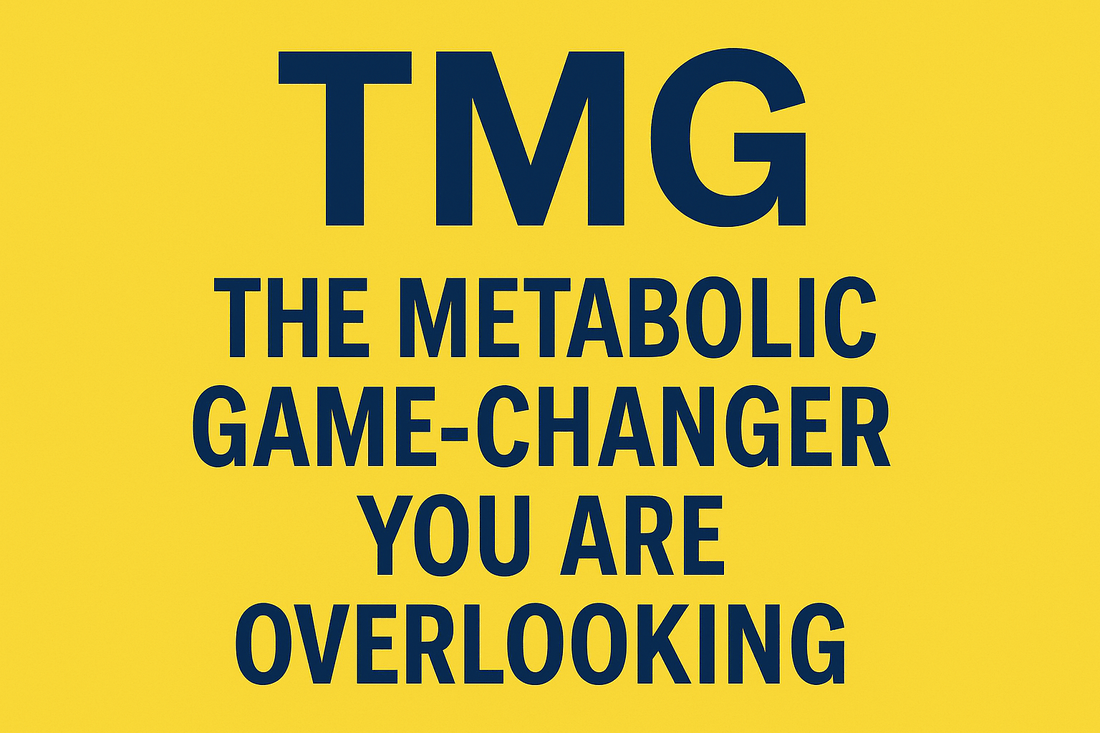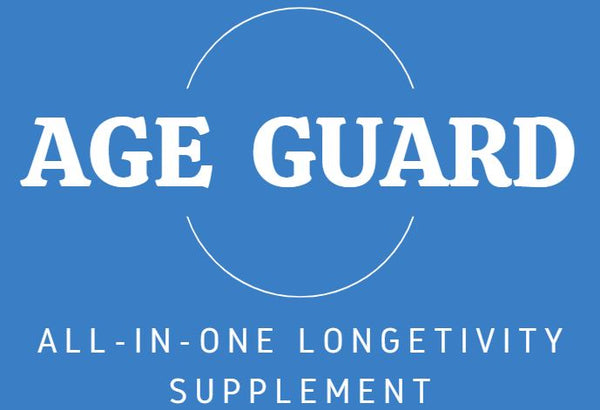
TMG: The Metabolic Game-Changer You Are Overlooking
Share
Understanding TMG: The Methylation Maestro
Trimethylglycine, colloquially known as TMG or betaine, represents one of the most underappreciated compounds in the longevity optimization arsenal. This crystalline osmoprotectant emerges from sugar beets, spinach, and quinoa, wielding profound influence over cellular methylation processes that govern everything from DNA repair to neurotransmitter synthesis.
The nomenclature itself reveals TMG's molecular architecture—three methyl groups attached to a glycine backbone. These methyl donors function as biochemical currency, facilitating over 200 enzymatic reactions throughout your physiological landscape. Yet despite this metabolic omnipresence, TMG remains relegated to the shadows while flashier supplements dominate wellness conversations.
Methylation deficiencies cascade through multiple organ systems, manifesting as premature cellular senescence, compromised detoxification pathways, and suboptimal homocysteine metabolism. TMG's capacity to donate methyl groups positions it as a cornerstone nutrient for those experiencing the insidious creep of metabolic decline.
The Methylation Matrix Explained
Cellular methylation operates like a sophisticated biochemical switching system, determining which genes activate and which remain dormant. TMG serves as a primary methyl donor in this intricate dance, particularly when folate and B12 pathways become saturated or compromised.
This methylation process influences epigenetic expression—the dynamic modification of gene activity without altering DNA sequences themselves. For health-conscious individuals noticing subtle energy fluctuations or cognitive haziness, inadequate methylation support often underlies these seemingly minor symptoms.
Scientific Evidence: TMG's Multifaceted Benefits
Research illuminates TMG's remarkable versatility across diverse physiological domains. Clinical investigations demonstrate its capacity to modulate homocysteine levels, enhance hepatic function, and support cardiovascular resilience—particularly relevant for mid-life adults confronting age-related metabolic shifts.
"TMG supplementation consistently demonstrates the ability to reduce plasma homocysteine concentrations by 10-20% within six weeks, representing a significant cardiovascular risk reduction strategy."
Studies reveal TMG's neuroprotective properties extend beyond simple methylation support. The compound exhibits osmolytic characteristics, protecting neurons from oxidative stress while maintaining optimal cellular hydration. This dual mechanism proves especially valuable for individuals experiencing early cognitive fatigue or concentration difficulties.
Cardiovascular Optimization Through Homocysteine Management
Elevated homocysteine levels correlate with increased cardiovascular morbidity and accelerated arterial aging. TMG's ability to facilitate homocysteine remethylation back to methionine represents a crucial cardioprotective mechanism. This conversion prevents homocysteine accumulation while simultaneously regenerating methionine for ongoing methylation reactions.
For adults experiencing subtle energy declines or joint discomfort, homocysteine elevation often contributes to systemic inflammation and reduced nitric oxide bioavailability. TMG supplementation addresses these underlying metabolic imbalances rather than merely masking symptoms.
Hepatic Support and Detoxification Enhancement
The liver's methylation demands intensify with age, environmental toxin exposure, and metabolic stress. TMG's hepatoprotective properties stem from its role in phosphatidylcholine synthesis and cellular membrane integrity maintenance. These mechanisms prove essential for optimal Phase II detoxification pathways.
Clinical evidence suggests TMG supplementation improves hepatic fat metabolism while reducing inflammatory markers associated with non-alcoholic fatty liver disease—a condition affecting nearly 25% of adults over 40.
Age Guard's Comprehensive TMG Integration
Recognizing TMG's foundational importance for cellular longevity, Age Guard incorporates clinically effective TMG dosages within its comprehensive daily supplement. This strategic inclusion ensures optimal methylation support while synergistically enhancing the bioavailability and efficacy of companion nutrients like NMN, CoQ10, and curcumin.
The formulation addresses the common challenge of nutrient isolation by providing TMG alongside complementary methyl donors and cofactors. This approach prevents the metabolic bottlenecks that occur when individual nutrients are supplemented in isolation, potentially creating imbalances in interconnected biochemical pathways.
Age Guard's science-backed approach eliminates the guesswork inherent in assembling multiple supplements while ensuring each ingredient reaches therapeutic thresholds. For health-conscious adults seeking streamlined longevity support without compromising efficacy, this comprehensive strategy addresses TMG deficiency within the broader context of cellular optimization.
Dosage Considerations and Optimization Strategies
TMG supplementation requires nuanced dosing strategies that account for individual methylation capacity, genetic polymorphisms, and concurrent nutrient intake. Research suggests optimal benefits occur within the 1.5-6 gram daily range, though individual requirements vary based on methylation demands and baseline homocysteine levels.
| Daily Dosage Range | Primary Benefits | Optimal Timing |
|---|---|---|
| 500-1500mg | Basic methylation support | With morning meal |
| 1500-3000mg | Homocysteine optimization | Divided doses with meals |
| 3000-6000mg | Therapeutic intervention | Under professional guidance |
Timing considerations prove equally important. TMG absorption improves when consumed with meals containing healthy fats, which facilitate the transport of methylated compounds across cellular membranes. Splitting doses throughout the day maintains steady methylation substrate availability.
Synergistic Nutrient Partnerships
TMG's efficacy amplifies when combined with complementary methylation supporters and cellular energy enhancers. B-complex vitamins, particularly folate and B12, work synergistically with TMG to optimize the methylation cycle's efficiency. This nutritional symphony prevents the metabolic logjams that occur when isolated nutrients overwhelm specific enzymatic pathways.
Magnesium and zinc serve as essential cofactors for TMG-dependent enzymes, while antioxidants like vitamin E protect methylated compounds from oxidative degradation. This interconnected approach explains why comprehensive formulations often outperform isolated TMG supplementation.
Common Questions About TMG Supplementation
How quickly can I expect to notice TMG's effects?
Individual responses vary considerably, but most users report subtle energy improvements within 2-4 weeks of consistent supplementation. Homocysteine level reductions typically become measurable within 6-8 weeks, while cognitive benefits may require 8-12 weeks of sustained use.
Can TMG interact with medications or other supplements?
TMG generally exhibits excellent safety profiles with minimal interaction potential. However, individuals taking blood-thinning medications should consult healthcare providers, as improved homocysteine metabolism may influence coagulation parameters. Those with existing methylation imbalances may initially experience mild adjustment symptoms.
Is TMG suitable for vegetarians and vegans?
Plant-based diets often provide suboptimal TMG levels compared to omnivorous eating patterns. Vegetarians and vegans frequently benefit significantly from TMG supplementation due to reduced dietary intake of natural betaine sources and potential B12 deficiencies that compound methylation challenges.
Future Directions and Research Frontiers
Emerging research explores TMG's potential applications in neurodegeneration prevention, muscle protein synthesis optimization, and longevity pathway activation. Preliminary studies suggest TMG may influence sirtuins—the same longevity proteins targeted by resveratrol and NMN—through methylation-dependent mechanisms.
The intersection of TMG supplementation with precision nutrition approaches promises personalized dosing strategies based on genetic methylation capacity. MTHFR polymorphisms, affecting nearly 40% of the population, may indicate increased TMG requirements for optimal health outcomes.
As our understanding of epigenetic aging mechanisms deepens, TMG's role as a fundamental methylation substrate positions it as an essential component of evidence-based longevity protocols. The compound's ability to influence gene expression through methylation represents a powerful tool for healthy aging optimization.
For health-conscious adults seeking comprehensive metabolic support, TMG offers a scientifically validated approach to addressing the underlying cellular processes that govern vitality, cognitive function, and overall wellbeing. Its integration within comprehensive formulations ensures optimal bioavailability while supporting the complex interconnected pathways essential for healthy aging.
